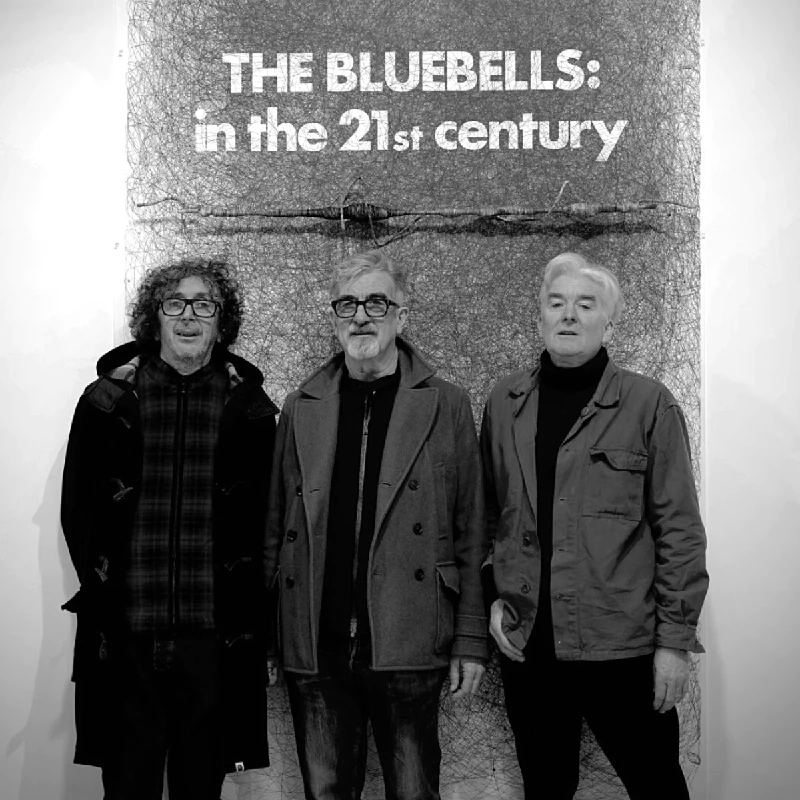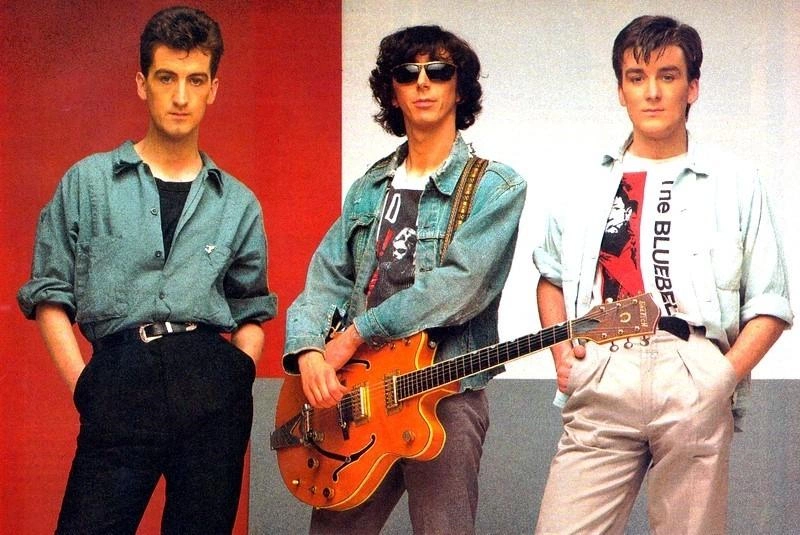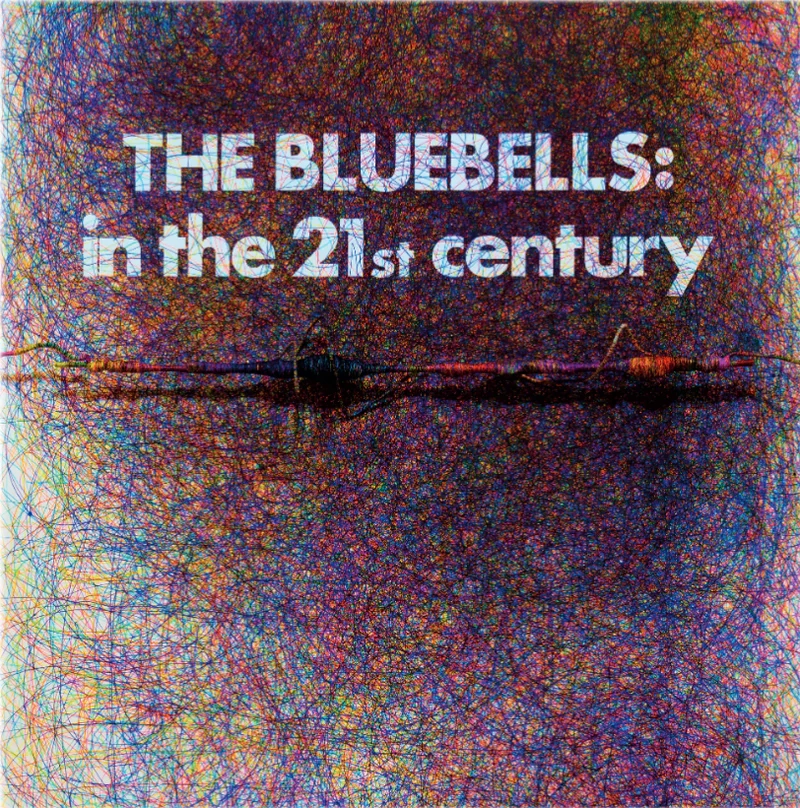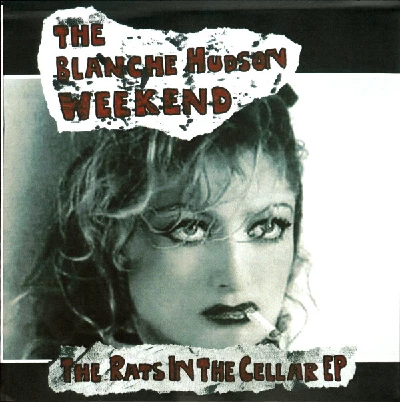One of the best-loved of all Scottish groups, indie/new wave band The Bluebells formed in Glasgow at the start of the 1980s and out of the ashes of punk. The group, whose central members are Ken McCluskey (vocals, harmonica), his brother David McCluskey (drums) and Robert ‘Bobby Bluebell’ Hodgens (guitar), were briefly aligned with the influential Postcard Records, who planned to release their song ‘Everybody’s Somebody’s Fool’ as a single. This, however, never materialised, and The Bluebells went on to sign to Sire Records. They released a string of Top 40 hits across 1984 including ‘Cath’, I’m Falling’ and ‘Young at Heart’ as well as a successful debut album ‘Sisters’, which was partially produced by Elvis Costello. The Bluebells split up in 1986, but went through an unexpected revival in 1993 when ‘Young at Heart’ was used on a TV advert for Volkswagen. Its reissue rocketed to number one in the UK, where it spent four weeks, and the hastily reformed group made several appearances on ‘Top of The Pops’. The Bluebells have reformed regularly since then to play occasional gigs and make festival appearances, and now. almost forty years after its predecessor first came out, have released a second album, ‘In the 21st Century’ on the hip Glaswegian label Last Night From Glasgow, which also reissued ‘Sisters’ in 2020. ‘In the 21st Century’ runs to twelve tracks, to which both the McCluskeys and Hodgens have contributed four songs each. Reflective in tone, it picks up all these years on where ‘Sisters’ left off, combining The Bluebells’ flair for sharp melody with wry lyricism. It opens convincingly with the breezy country pop of the Hodgens-penned ‘Daddy Was An Engineer’, in which he examines his working class roots and father’s resilience and tough work ethic. Each member reflects on their musical past, Ken with the jangling discordance of ‘Anyone Could Be a Buzzcock’ in which he recalls seeing The Subway Sect and his teenage punk years, Hodgens on the brooding ‘The Ballad of the Bells’ in which he reflects on The Bluebells 80’s heyday, and David with the wistful ‘Living Out Loud’. Other highlights include the stop-start pop anthem ‘Orienteering’, and the heart-breaking, folky ‘The Boy Who Slipped Away’. Pennyblack spoke to Ken McCluskey about ‘In the 21st Century’. PB: Did you have any nerves about putting out ‘In the 21st Century’ after such a long gap between albums and because ‘Sisters;’ has such a legacy? Were you concerned that it might not live up to past expectations? KEN MCCLUSKEY: I don’t think so. We were highly confident that the songs were strong enough. We came up with the idea that the three of us would each put in four songs. We had all written lots of songs and bits of songs in the intervening years, so we were all confident that we had four songs that were strong enough. We produced the record ourselves as well, so we had control of what went on the album and which songs we chose. PB: ‘Sisters’ was produced by several producers… KM: That was problematic at that time. We used Elvis Costello on a few tracks. He was the initial producer, and then he went on tour, and we had to use his engineer, Colin Bailey, who went on to eventually produce things like The La’s ‘There She Goes’. He did ‘Cath’ with us, and because of that Colin got a reputation as a producer. He and a guy called Rob Andrews who was in Graham Parker and The Rumour went on to produce a couple of the other tracks also. There were a few other producers as well. It was all to do with convenience, who was available at the time. We couldn’t get Elvis Costello for three weeks in a row, so that was the way it happened. This one was better planned and more focused. PB: All three of you have written a song about your musical past. Was that a conscious decision? KM: I suppose that it is quite autobiographical in a sense, but it wasn’t. We wrote them all separately. There was no collaboration as such. It was coincidental. Maybe we are at that age in which we are melancholic about the past and what could have happened and what did happen (Laughs) PB: On ‘Living It Out Loud’ there is the lyric “But you just couldn’t keep it up”, Was there a feeling of unfinished business about this record? KM: No, I wouldn’t say so. In between those thirty-nine years we all have had musical careers. David and I had the McCluskey Brothers. We did four albums. Robert has done a lot of songwriting for Texas. He has written their last three or four albums with them. He has also had another band The Poems, and they did an album, ‘Young America’. We have still been working in music, but more at a a part-time kevel. David, Robert and I are all older dads and have young kids, so we had all to take time out from being full-time musicians. It is quite hard being a full-time musician, so I became a teacher of Music at a Glasgow Kelvin College. It used to be called Stow College, and we run Electric Honey Records there, so I have still been involved in making music. David is a music therapist. He works for a charity, and Robert has been DJ-ing as well as writing for Texas and Bewitched and all sorts of bands. We had to make a career change because we weren’t making a living out of the Bluebells, We had to go our separate ways, so there is maybe some regret about that, but we certainly wouldn’t say that we were let down or we were hard done by or anything. We were quite blessed in that we got to make music in the first place, but as you get older you have got more responsibilities. You have got to pay your rent. We had to move on and do other things but we still played music, maybe not always together as such, so there are no real regrets. I think at this age – we are all round about sixty – it is a time in which you start reflecting, and maybe that is one of the reasons why we have done this album. PB: Was another factor for recording this album, that as great as they are, you just got sick of playing songs like ‘Cath’ and ‘Young at Heart’ over and over? KM: We did a few of these ReWind Festivals and they are a bit dull. People just want ‘Cath’ and they want ‘Young at Heart’ and they are not really interested in hearing new stuff, so we did that for a while and it got a bit boring. So, we thought if we are going to do gigs we should try and do some new songs because it makes it more interesting. That is another reason why the album came about. We were also encouraged to make the album by Last Night From Glasgow. After they re-released ‘Sisters’, Ian Smith, who runs it, got us together and said, “Look, guys, you should really do a new album. I think people would enjoy it.” We needed a wee nudge from somebody and Ian was the guy who gave us a nudge, and provided the facilities financially for making the album as well. PB: It was recorded at the Green Door Studio. KM: Yeah, Green Door in the Hidden Lane in Glasgow. It is just next door to the Last Night From Glasgow offices. We worked with a very good engineer called Ronan Faith. He was one of the students at my college actually, so it was quite nice working with a young, fresh pair of ears. We could only do it at the weekend because of our other responsibilities, so we did it on Saturdays and Sundays over about ten days, and five weekends in a row. PB: ‘Anyone Could Be a Buzzcock’, which is one of your songs, acknowledges that anyone could form a punk band and frequently did. Was that one of the most important things that you learnt about being in a band, that one did not have to be fantastically talented to join one? KM: Yes. There was the whole thing about DIY spirit. When I was fifteen, punk rock happened so I was the perfect age. My brother was thirteen. and we started almost immediately a band called Raw Deal. We would go by train or bus into Glasgow because we are from Bothwell in Lanarkshire, which is maybe ten miles outside Glasgow, and it was really exciting going to a gig, say, at the Apollo with people getting on at different stages and everyone having a different look. We weren’t like King’s Road punk rockers. We just made up our own style, and it was very much based around Oxfam, Paddy’s Market and second-hand flea markets, so anyone could have a look, anyone could be a Buzzcock. You could put on your Mum’s blouse or turn your jacket inside out, and could customise your own clothes. It was the same with music as well. We were very much self-taught. We never went to lessons or anything like that. Anyone can do anything if you have the will to do it, and with the spirit and the openness at that time it was very easy to do that. You were encouraged to do that. It was getting away from that worthy prog rock guitar playing. We couldn’t really do that, so we did it our own way. We met Bobby Bluebell. He interviewed us. He had a fanzine, which again is coming from the punk rock school of DIY. Robert is from the other side of Glasgow from us. We would have never met him if he hadn’t of interviewed us for his magazine - that is how we initially met – and if it hadn’t been for record store culture. There were loads of record stores in places like Renfrew Street and Union Street,, and we would just go around all the record stores and meet different people. They were pretty open about things - “What record have you got?” and “Where did you get your jacket?” or “Where did you get your Mum’s blouse?” (Laughs) PB: ‘Orienteering’ is another one of your songs and was co-written with Brian Docherty. Who is he? KM: Brian Docherty is an old flat mate of mine, and we have got a side project called Docken Leaf. We have put out two records, and we did a version of ‘Orienteering’ as a single, and there is also a version on You Tube. It was slow and more like a ballad. I wanted to make it more uptempo and contemporary, and David and Bobby really liked it. They wanted to record it, so we just did a new arrangement of it and changed the key. I teach people from all different backgrounds. Most of the lines are from interviews that I have done with kids, not just one person but a mixture. A lot of them weren’t brought up with a mum or dad. They are maybe from a broken family and maybe they have got Asperger’s or Autism or whatever, and they want to be immediately famous. “How do I become famous? If I play the guitar will I become famous? Will I make money?” And you’re like, “Well, it doesn’t really work that way?” And then it is like, “Well, if I don’t make money, then I will just be lost.” A lot of kids think that you press a button and you become famous, and that song is about that. PB: ‘In the 21st Century’ is coming out in five different editions of vinyl. Is there a CD edition? KM: There is a CD. 1,000 copies are being printed, and there is a bonus track on the CD. It is called ‘Glasgow’s a Rainbow’. It is a cover of a song by Sister John. Last year Last Night From Glasgow put out a double A side. Sister John did a version of ‘Young at Heart’ and we did a version of their song, ‘Glasgow’s a Rainbow’. It is a bonus track on the CD, and we couldn’t put it on the vinyl because the vinyl would over run. Vinyl has to be about twenty-two and a half minutes a side, so if you go anymore than that you start to lose quality. We couldn’t really fit it onto the vinyl without losing the quality, so we just put it on the CD. PB: Last few questions. ‘Uncut’ has said in a recent review that “you narrowly escaped cult status with Postcard Records.” Do you see that as a blessing or a curse? KM: By the time we were hanging out with the Postcard guys and playing with Orange Juice and Aztec Camera, it was the beginning of the end of Postcard Records. Orange Juice went to Polydor. Aztec Camera went to Rough Trade. There wasn’t much happening at Postcard Records, and the other thing was our parents were like, “Look, guys, you need to get a job, or do something.” We got offered a major label contract. It was a no brainer. We got paid wages and in Postcard Records you got all the credibility in the world but you were paid fuck all. It would have been lovely to make a Postcard record, but realistically we had to make a decision - “Do we want to do a job?” or “Do we want do it part-time?” And we decided to do it as a job and that was why we went to a major label. PB: Why did you break up in 1986? KM: We toured all over the place. We did loads of gigs. We had a big audience in Spain. We had a big audience in Germany. We were not doing badly in Scandinavia. We went to America and we toured, toured, toured, and then when we came back after about a year, and after having hits, we went iinto the record company and nobody knew who the fuck we were. It was all different people. The managing director, the guy who had signed us, had moved on to Warner Brothers. He had taken all the secretaries and the infrastructure, so nobody knew who we were, and we went into the studio, and we recorded demo after demo after demo, and they just went, “Not good enough! Not good enough! Not good enough!” Then they stopped paying our wages so we just left. We didn’t really split up. We just stopped working. That was when David and I started writing our ‘Aware of All’ album, our first McCluskey Brothers album. PB: What do you think has been the Bluebells’ greatest achievement? KM: I think the greatest achievement has been having some kind of community. We are getting really positive vibes from this album and we played at Record Store Day last week in the courtyard of Last Night From Glasgow. There was just a really brilliant communal spirit of people willing you on, of good will. I think that if you bring people together that is the greatest achievement. PB: You’re playing an album launch at St Luke’s in Glasgow on the 4th June. What are your plans after that? KM: After that we have got a festival in Belgium on the 28th July Then we are going to probably try and get a few gigs down south, and then who knows? We will see how it goes. I am going to try and to retire this year from work, so we will have a lot more time to travel and play gigs So, I hope that we will get more freedom and a lot more time to write songs and to play gigs because we love playing live. PB: Thank you.
Band Links:-
https://www.facebook.com/bluebellsofficialPlay in YouTube:-
Picture Gallery:-



intro
Bluebells frontman Ken McCluskey talks to John Clarkson about the release of their long-awaited new LP and first album in almost forty years, 'In the 21st Century'.
reviews |
|
Exile on Twee Street (2014) |

|
| Fantastic collection of early, largely unreleased demos from Scottish indie guitar pop band the Bluebells, which were originally due to be released on Postcard Records |
most viewed articles
current edition
John McKay - InterviewCathode Ray - Interview
Robert Forster - Interview
When Rivers Meet - Waterfront, Norwich, 29/5/2025
Spear Of Destiny - Interview
Fiona Hutchings - Interview
Carl Ewens - David Bowie 1964 to 1982 On Track: Every Album, Every Song
Chris Wade - Interview
Shrag - Huw Stephens Session 08.12.10 and Marc Riley Session 21.03.12
Brian Wilson - Ten Songs That Made Me Love...
previous editions
Heavenly - P.U.N.K. Girl EPBoomtown Rats - Ten Songs That Made Me Love....
Manic Street Preachers - (Gig of a Lifetime) Millennium Stadium, Cardiff, December 1999
Allan Clarke - Interview
Oasis - Oasis, Earl's Court, London, 1995
Barrie Barlow - Interview
Beautiful South - Ten Songs That Made Me Love...
Pixies - Ten Songs That Made Me Love...
Chuck Prophet - Ten Songs That Made Me Love...
Dwina Gibb - Interview
most viewed reviews
current edition
Peter Doolan - I Am a Tree Rooted to the Spot and a Snake Moves Around Me,in a CircleVinny Peculiar - Things Too Long Left Unsaid
Garbage - Let All That We Imagine Be The Light
Vultures - Liz Kershaw Session 16.06.88
John McKay - Sixes and #Sevens
Little Simz - Lotus
HAIM - I Quit
Pulp - More
Lapsley - I'm a Hurricane, I'm a Woman In Love
Billy Nomates - Metalhorse
Pennyblackmusic Regular Contributors
Adrian Janes
Amanda J. Window
Andrew Twambley
Anthony Dhanendran
Benjamin Howarth
Cila Warncke
Daniel Cressey
Darren Aston
Dastardly
Dave Goodwin
Denzil Watson
Dominic B. Simpson
Eoghan Lyng
Fiona Hutchings
Harry Sherriff
Helen Tipping
Jamie Rowland
John Clarkson
Julie Cruickshank
Kimberly Bright
Lisa Torem
Maarten Schiethart